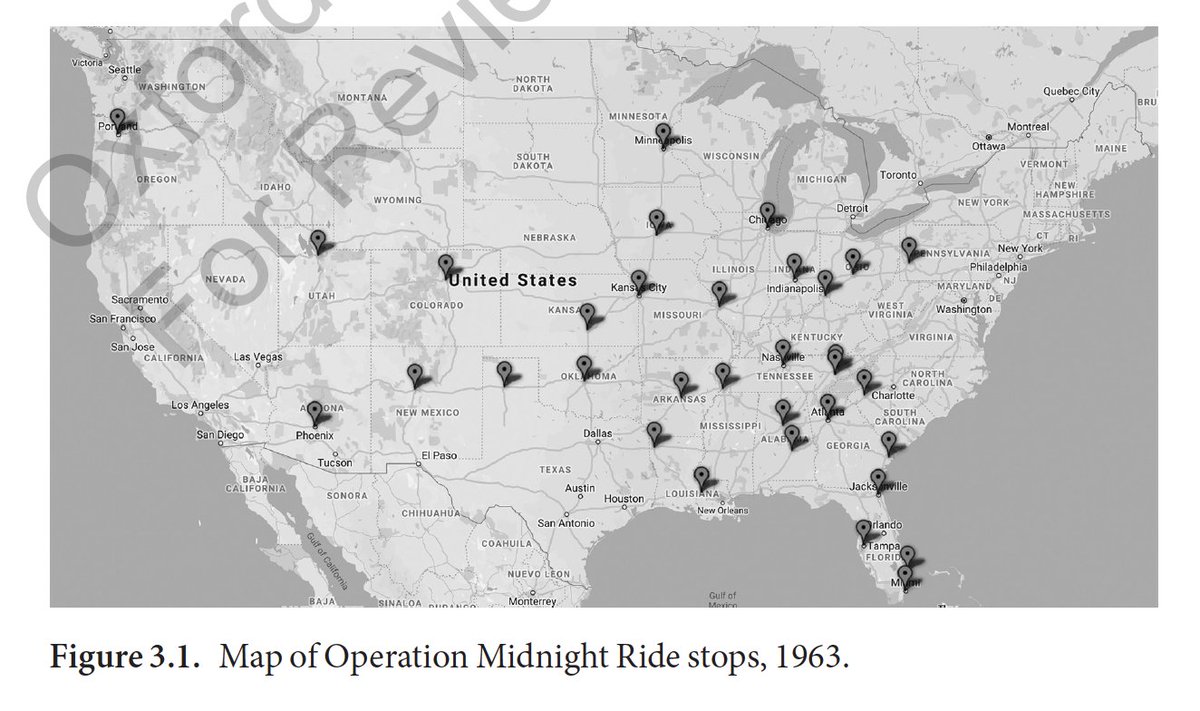
There is a clear corollary to the Jericho March from the 1960s called Operation Midnight Ride. Today, it's disgraced ex-general Michael Flynn & religious broadcaster Eric Metaxas; back then it was disgraced ex-general Edwin Walker & religious broadcaster Billy James Hargis. 1/
https://twitter.com/roddreher/status/1337807872877584386
I discuss Operation Midnight Ride in my book, but there's also an excellent article on it by @sissenberg if you're interested in a deep dive.
But I'll give you a tldr summation. 2/
smithsonianmag.com/history/wild-r…
But I'll give you a tldr summation. 2/
smithsonianmag.com/history/wild-r…
Former General Edwin Walker was a Korean War hero who was cashiered by the military in the early 60s for spreading whacko anti-communist conspiracy theories to soldiers under his command.
He's mostly fogotten today, but left-wingers at the time feared he might attempt a coup. 3/
He's mostly fogotten today, but left-wingers at the time feared he might attempt a coup. 3/
The antagonists in movies like Seven Days in May were partly based on Walker (with a hefty dose of Douglas MacArthur mixed in). Indeed, JFK was so worried about a right-wing sponsored military coup that he gave the movie director special permission to film in the White House. 4/
Ironically, the same man who shot JFK first took a shot at Edwin Walker. That's right; Lee Harvey Oswald sniped at Walker through his kitchen window but the deflection only wounded the man. 5/
When Oswald's wife asked him what right he had to do it, he responded, “Well, what would you say if somebody got rid of Hitler at the right time?”
The point here is just that folks on the Left were worried at the time about Walker's authoritarian potential. 6/
The point here is just that folks on the Left were worried at the time about Walker's authoritarian potential. 6/
One of Walker's key allies was Billy James Hargis, an Oklahoma pastor and radio broadcaster. They concocted the idea of going on a barnstorming tour of the US, holding quasi-campaign rallies with an eye towards Walker making a third party bid for the presidency in '64. 7/ 

It was called "Operation Midnight Ride" in a nod towards Paul Revere, but instead of warning that the British were coming, Walker and Hargis would sound the alarm about Communist infiltration of the federal government. One if by Congress, two if by White House. 8/
The FBI kept tabs on Midnight Ride, paying informants and the like, in order to assess the possibility of it turning into an insurrection. However, Walker was a wooden speaker with little charisma (not unlike Flynn for that matter), so his political aspirations went nowhere. 9/
Thus the Jericho March is merely the latest expression of something quite old, an example of the alliance of ex-military officers possessing political aspirations and New Christian Right broadcasters seeking audience and influence. 10/
If you want to find out what happened to Walker or Hargis--hint: think Jerry Falwell Jr but worse--check out Issenberg's article, or go get a copy of my book. I can promise you it was hard to be dull given the presence of these bozos in the story! /fin
amazon.com/Radio-Right-Br…
amazon.com/Radio-Right-Br…
• • •
Missing some Tweet in this thread? You can try to
force a refresh


